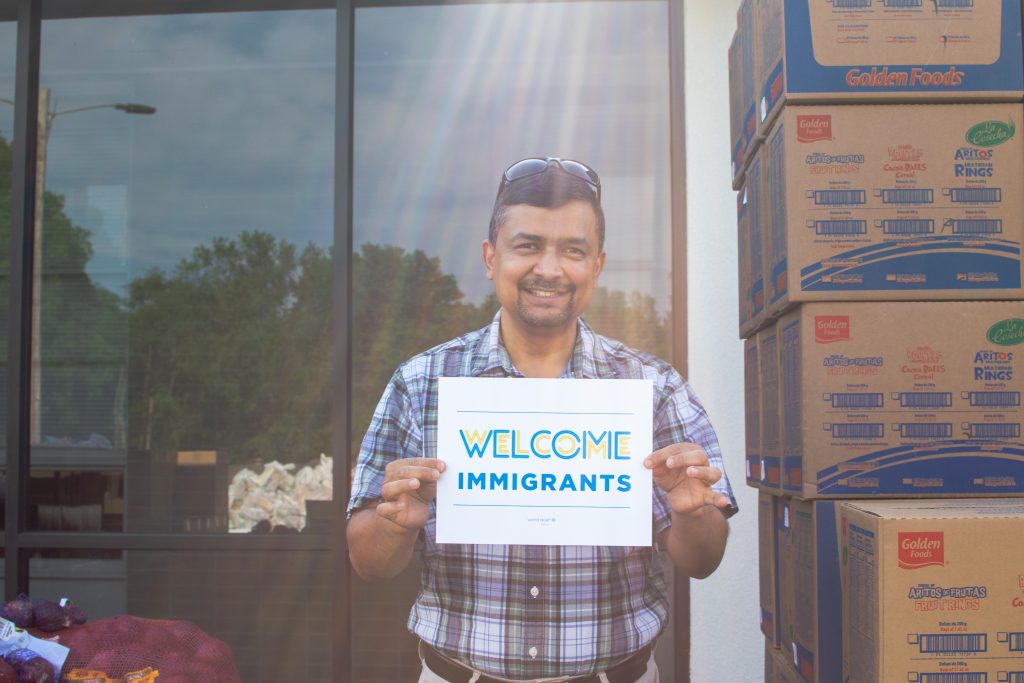Throughout July, we’ve been focusing on citizenship and what it means to our friends in the immigrant community about what it means to them to be an American. As we close out the month, we wanted to share one last story with you from our operations manager, Bishnu, who is originally from Nepal.
As Nepalis
I came to the United States in 2005 for the first time. It was just a two-week visit for a conference in Arizona. I visited a few more times until we moved to the US permanently as a family in 2011 through the Diversity Visa Program, also known as the green card lottery.
The primary reason for our move to the US was our children’s schooling and better educational opportunities for them.
However, it was quite a dilemma for me and my wife to become US citizens since Nepal has no dual citizenship policy. It was a big decision for us. It took us a couple of months to finally decide to apply for citizenship. We realized we needed to go for it if our children wanted to become American citizens and stay here in the US.
Soon after, we submitted our application for naturalization and had our fingerprints taken. This process took us around 12 months. We all started preparing for the interview, which requires you to understand and answer any of 100 questions. It was a great opportunity to understand the US Constitution, the history and the responsibility of being a US citizen. Finally, we passed the interview without any problems.
We felt so proud to be citizens of the United States, taking our oath surrounded by people from 18 different countries from around the world. Once you become an American citizen, you have to report to the Nepali government and give up your passport if it hasn’t expired yet, therefore giving up our Nepali citizenship, but we felt that the benefits of being American citizens were worth it.

As Americans
First, our children have better educational opportunities, especially when applying for various college scholarships. Both of my children got full tuition scholarships. They are now about to finish college with no debt. It is a great blessing for us!
Second, one of my children desires to work with the federal government, which requires US citizenship.
Third, we had a hard time getting visas to visit many countries with our Nepali passports. Now, we can easily get visas, mostly on arrival, to those counties. It has given us the privilege to go anywhere in the world.
In fact, it was a strange experience when I traveled to Nepal with my US passport. I felt like a foreigner as I was told to stand in the line with other non-Nepali people and had to get a visa before entering the country. They granted me just a one-month visa in my first trip to Nepal as an American.
Before, we had always felt like second class citizens when we were living with permanent resident status in the US, but now we feel equal to all Americans. We were able to vote and elect the President and lawmakers of the country. It gives us great dignity and pride to be citizens of this great country!
Bishnu, thank you for sharing your story with us! It is a pleasure to work alongside you and to have you as a fellow American. If you want to help other immigrants on their road to American citizenship, join us as a volunteer.

